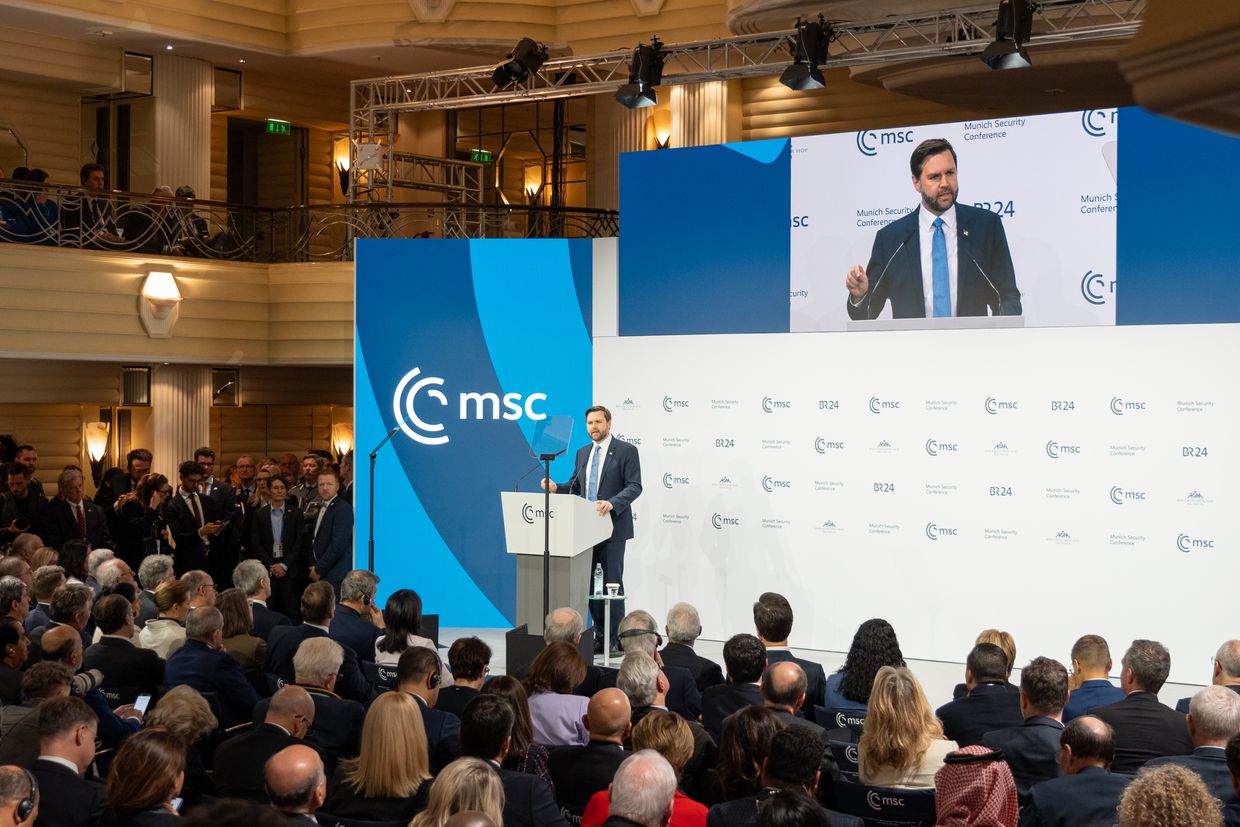'It doesn't advance American interests' — JD Vance walks back WSJ comments on US troops in Ukraine

U.S. Vice President JD Vance on Feb. 14 reiterated that Russia's full-scale invasion of Ukraine "is between Russia and Ukraine" and accused the Wall Street Journal (WSJ) of "twisting (his) words" in a recently published interview.
Vance told the WSJ on Feb. 13 that the U.S. had "military tools of leverage" it could potentially use to pressure Russia in negotiations to end the war. When asked if the possibility of U.S. troops in Ukraine was "officially off the table," Vance replied that in negotiations with President Donald Trump, "everything is on the table."
In a post on X the following day, Vance walked those comments back and called the WSJ's coverage "absurd."
"President Trump is the ultimate deal maker and will bring peace to the region by ending the war in Ukraine," Vance wrote.
"As we've always said, American troops should never be put into harm's way where it doesn't advance American interests and security. This war is between Russia and Ukraine."
Vance appeared to take issue with the WSJ interview's headline, which read "Vance wields threat of sanctions, military action to push (Russian President Vladimir) Putin into Ukraine deal."
Even though Vance did not rule out the possibility of military leverage in future negotiations and refused to say deploying U.S. troops was off the table, he accused the outlet of "twisting (his) words."
Vance lashed out at the publication further, claiming without evidence that the WSJ has "spent years pushing for more American sons and daughters in uniform to be unnecessarily deployed overseas."
The Vice President's remarks came on the same day that he led a U.S. delegation in talks with President Volodymyr Zelensky at the Munich Security Conference. The leaders discussed a potential minerals agreement between Washington and Kyiv, which could involve access to Ukraine's mineral reserves in exchange for continued U.S. military and financial support.
Before the meeting, Vance delivered an excoriating address to the conference attendees in which he suggested progressive European policies were a greater threat to the EU than Russia. His speech downplayed the threat of authoritarian states and touted the value of far-right political parties.
A few days before the Munich Security Conference, U.S. Defense Secretary Pete Hegseth said that the U.S. would not send troops to Ukraine. Kyiv's Western allies have discussed the possibility of deploying peacekeeping forces as a potential security guarantee in the event of a ceasefire.












